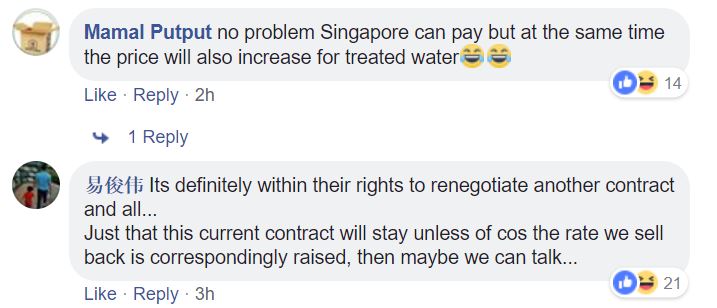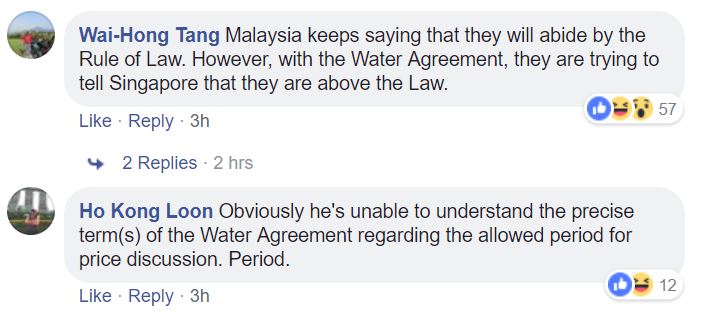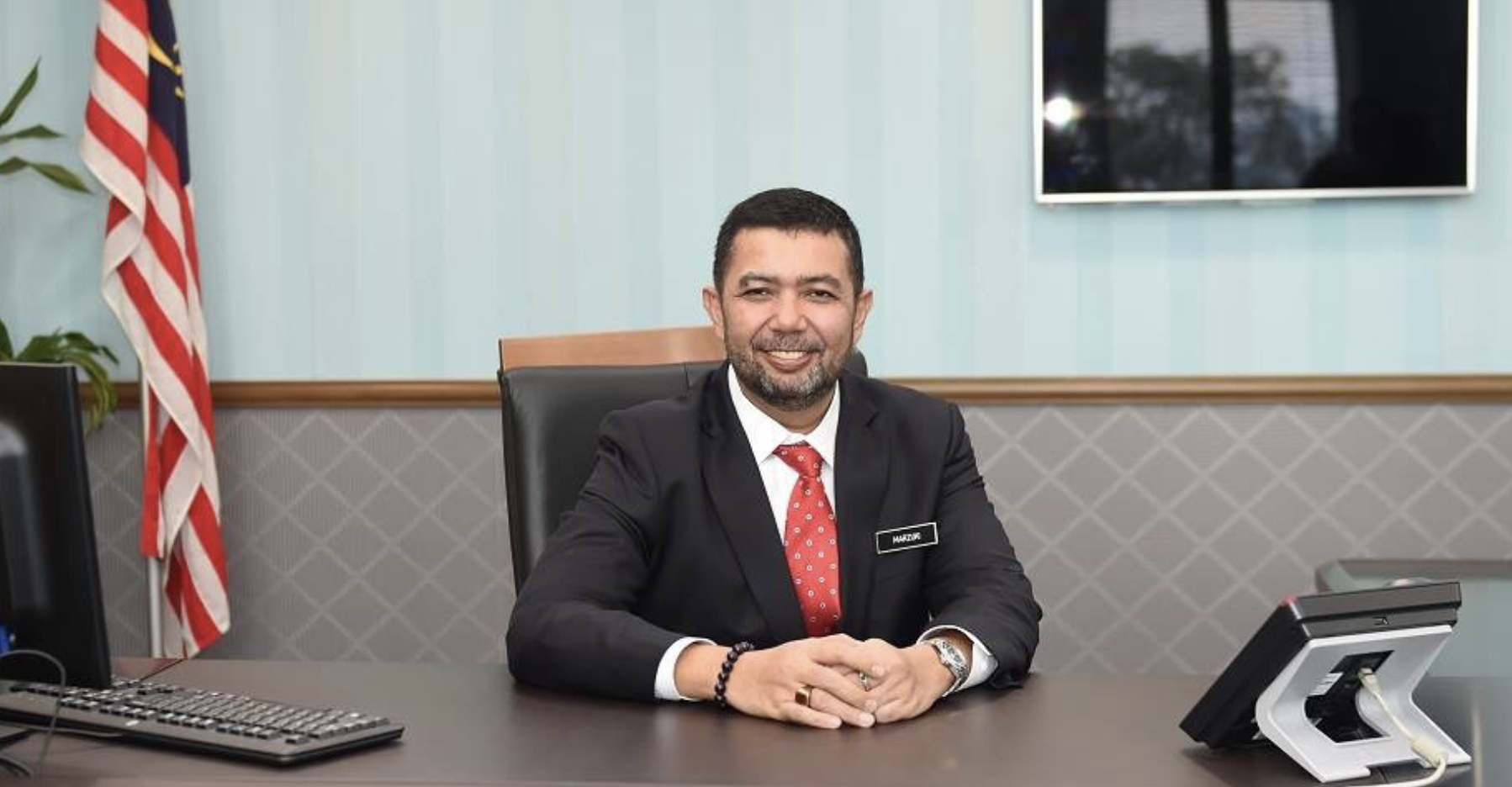Prime Minister Mahathir Mohamad is coming to town for the ASEAN Summit, from Nov. 11 to 15.
And while he's here, he might take the opportunity to bring up the topic of one of his pet topics, the 1962 Water Agreement between Singapore and Malaysia.
Said Malaysia's Deputy Foreign Minister Marzuki Yahya on Oct. 31:
"The government is very committed and remains firm on its stance regarding the water issue and we will not admit defeat.
We will continue with our efforts to discuss and negotiate. For the information of this House, on November 12, 2018 the prime minister will be visiting Singapore.
And perhaps the water price will be one of the issues he will discuss with them."
Heated debate
According to the Malay Mail, Marzuki was speaking in Parliament and responding to a question from Mohd Shahar Abdullah, a member of the opposition Barisan Nasional coalition.
Shahar claimed that Malaysia was "losing money" to the tune of RM 1.8 billion (S$596 million) if the current 1962 Water Agreement was allowed to stand.
It's not known on what basis Shahar was calculating those figures. He demanded that the Foreign Ministry take firm action against Singapore for the accusation.
Another Malaysian politician, Hassan Abdul Karim of PKR and the Pakatan Harapan coalition, said that he was worried about war breaking out if Malaysia stopped supplying water to Singapore.
Marzuki played down those remarks, saying that Malaysia has "good ties" with Singapore and would discuss the matter instead of resorting to violence.
Mahathir had also earlier said that Malaysia had no intention of war with Singapore.
[related_story]
Water Agreement tied to sovereignty, can't be changed unilaterally
In July 9 in Parliament, Singapore's Foreign Affairs Minister Vivian Balakrishnan spelled out Singapore's stance on the matter.
He explained that the issue is not about the price, but the fact that the 1962 Water Agreement was tied to the 1965 Separation Agreement that gave Singapore her independence.
Said Minister Vivian:
"The 1962 Water Agreement was guaranteed by both Malaysia and Singapore.
This guarantee was in the 1965 Separation Agreement, which in turn was registered with the United Nations.
Any breach of the 1962 Water Agreement would call into question the Separation Agreement, which is the basis for Singapore’s very existence as an independent sovereign state."
Malaysia acknowledged benefits of pricing terms in the Water Agreement
He added that Malaysia made a decision not to review the 1962 Water Agreement in 1987 because they benefited from the pricing of the deal:
"Johor currently buys treated water from Singapore at 50 sen per thousand gallons. This price, and in fact even the volume, is provided for under the 1962 Water Agreement.
50 sen per thousand ringgit is a fraction of the true cost of treating the water.
Hence, in 2002, then Prime Minister Mahathir in his first incarnation, said that Malaysia did not ask for a review when it was due as Malaysia knew that any revision would also affect the price of treated water sold by Singapore to Malaysia.
Then Johor State Assembly Speaker Zainal Abidin Mohd Zain also said: “There was no point in pressing for a review of water price in 1986 as Johor was dependent on Singapore for its treated water supply.”
And Singapore would also increase the price of treated water sold to Johor. Malaysia took a conscious decision not to review the price when it had the opportunity to do so.
This is why even to this day, Johor buys more treated water than it is entitled to strictly under the 1962 Water Agreement. These additional supplies of treated water that we’ve been selling to Johor at Johor’s request, and sold at the same rate stipulated by the 1962 Water Agreement.
This sale is made on a good will basis, and without prejudice to our rights under the 1962 Water Agreement."
Water Agreement "sacrosanct"
The Water Agreement warranted a mention in Prime Minister Lee Hsien Loong's National Day Rally speech in Aug. 2018.
He said it was "sacrosanct" and emphasised that water has always been an issue of strategy, security, and sensitive foreign policy in Singapore.
Sentiment on the ground
Singaporean netizens naturally had some choice responses following Marzuki's comments about raising water prices.
Some pointed out the tit-for-tat measures that Singapore could take:

While others questioned Malaysia's interpretation of the agreement:

And still others sense a political motive beneath the surface:

Related stories:
Top image from Marzuki Yahya Facebook page.
Content that keeps Mothership.sg going
??
My news feed got messed up. I want my life back.
?
This is what it feels like to have your hair removed by intense bursts of light.
???
Earn some karma points here. Say real one.
? vs ?
You're on the MRT. Do you read or surf?
Why not both??
?
Damn cheap movie tickets here.
If you like what you read, follow us on Facebook, Instagram, Twitter and Telegram to get the latest updates.
